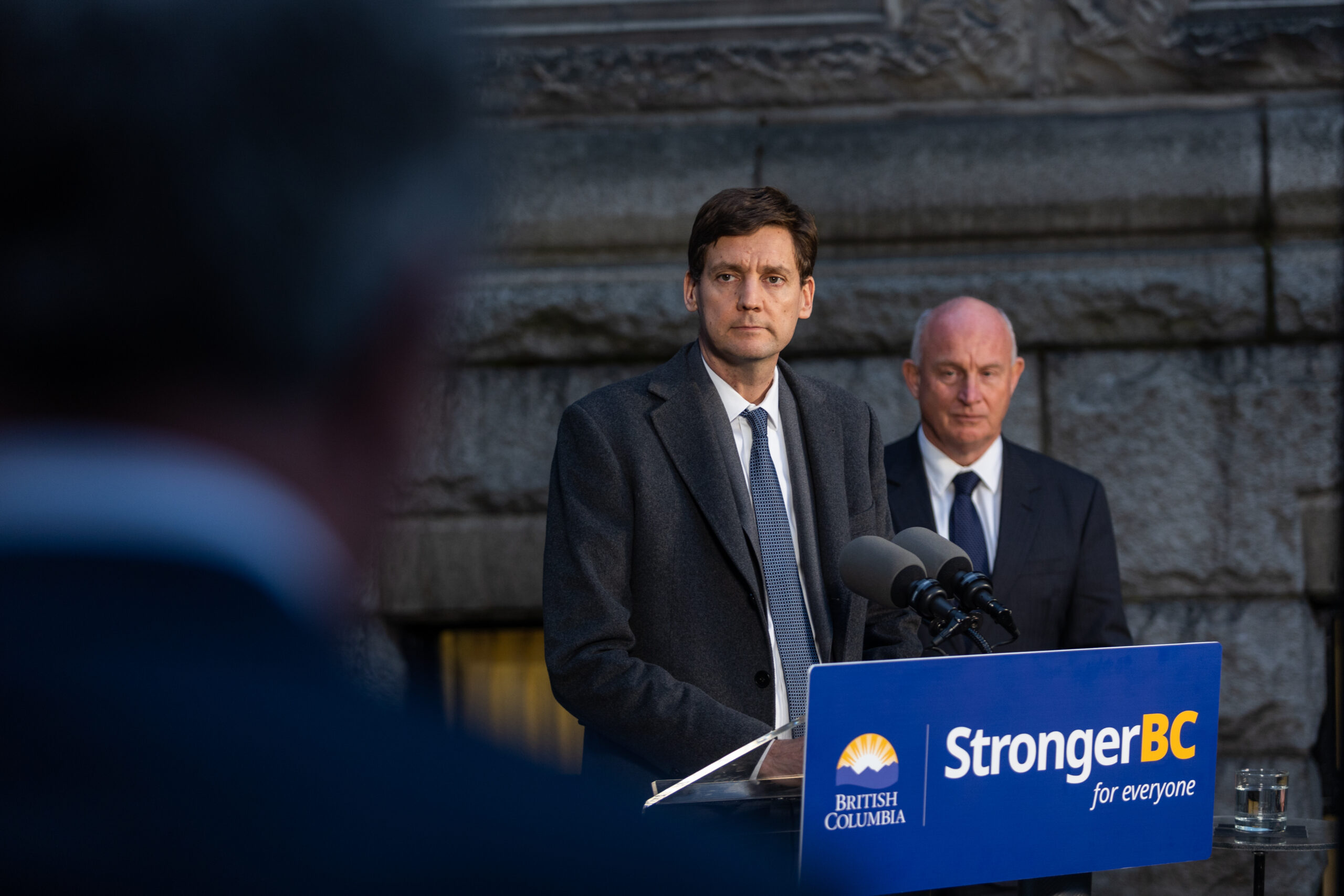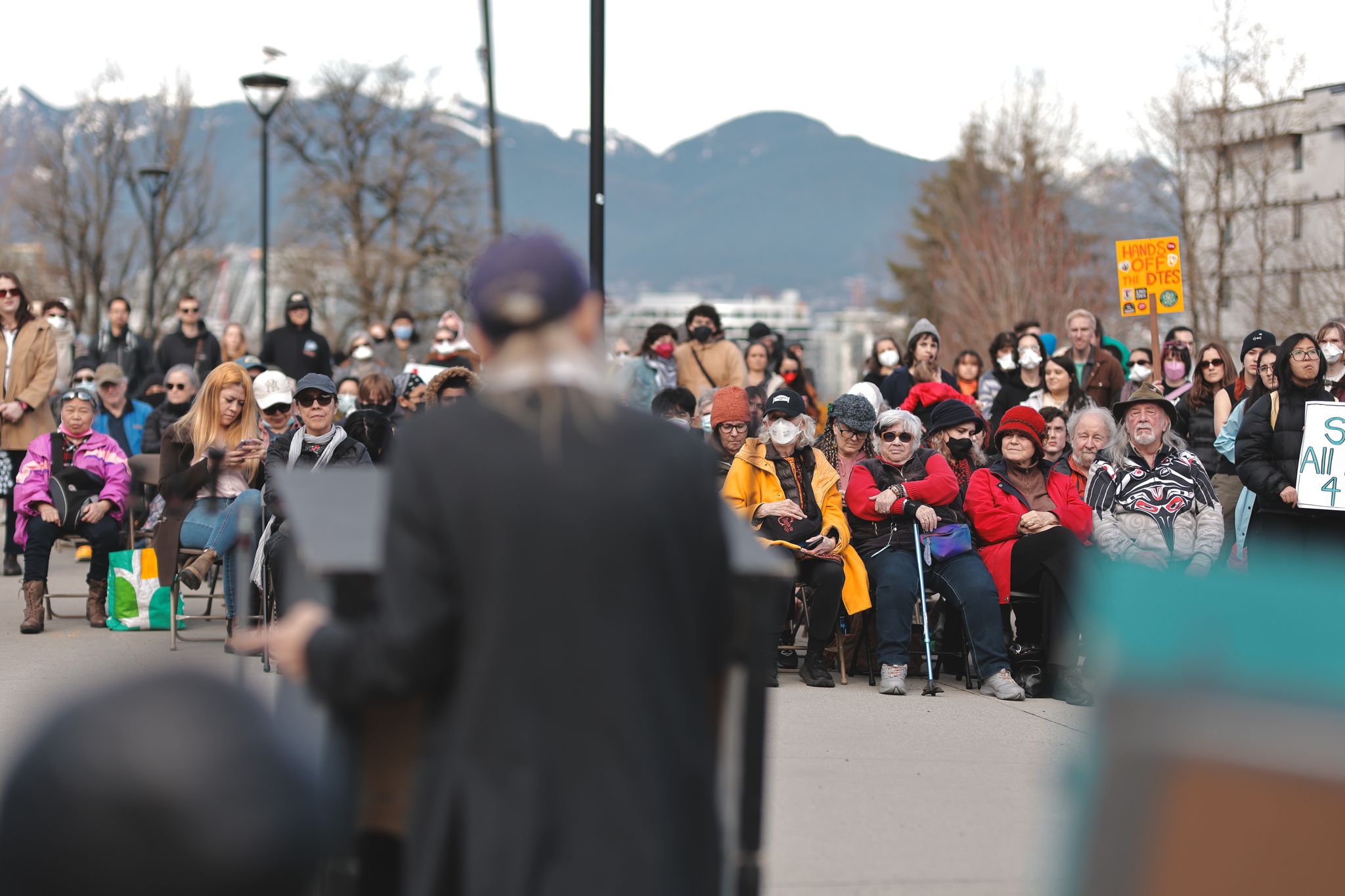The anti-protest bylaw passed by Mayor Robertson this week will hurt the homeless, Darcie Bennett of PIVOT Legal Society told The Mainlander. The bylaw states that any “structure, object, or substance” – including tents – placed on public space without permission of the City Engineer can receive a minimum $1,000 fine. “We are of the opinion that the bylaw should change, to bring it line with homeless peoples’ rights,” says Bennett.
Given that there are no specific provisions allowing the homeless to apply for permits to pitch tents or structures, and given that the $1,000-$5,000 fine is extreme, the bylaw is effectively a prohibition on people pitching tents in public spaces.
In October 2008, the City of Victoria’s bylaw banning tents on public lands was struck down by the BC Supreme Court’s Adams decision for infringing on peoples’ Charter right to shelter. At that time, says Bennett, PIVOT wrote a letter to Vancouver City Council asking that Vancouver’s bylaws be brought in line with the Adams decision, but the City offered no response.
Now, two years later, the City’s new anti-structure bylaw does nothing to protect the right to shelter of those with nowhere else to go. On the contrary, it introduces new exorbitant fines. Last week, PIVOT proposed a series of amendments to the bylaw, including making explicit exceptions for homeless people, but City Council approved the bylaw without incorporating any of these changes.
City lawyers have taken the position that “Adams doesn’t apply here in Vancouver,” and as of yet no one has challenged that position in court.
According to Bennett, the City told PIVOT that the right to shelter on public land does not exist in Vancouver because there is enough shelter space and housing to accommodate everyone. But Bennett points out that the City’s own numbers show there are far more homeless people in the City than shelter beds. On top of that, 5 additional shelters are slated to be shut down next week.
The City admits that the bylaw gives police the power to fine homeless people, but is asking critics to trust that this power won’t be used. The City Administrative report claims “compassionate” intentions toward homeless people, and a “holistic” approach toward homelessness, but offers no actual legal protection or exemption from the bylaw.
This attitude is reminiscent of the Province’s response to critics of the Olympic Kidnapping Act, which gives police the power to forcefully apprehend and detain homeless people against their will. Minister Coleman claimed that the power “probably wouldn’t be used,” but rammed the bill through the legislature nonetheless.
Bennett also criticized the anti-structure bylaw’s impact on political expression. “When you try to use zoning bylaws to regulate political expression, it’s not good governance,” she said.
Background
In 2006, the City of Vancouver attempted to use its zoning powers to tear down the Falun Gong’s protest structures outside the Chinese Government embassy. The Falun Gong challenged the City in the BC Supreme Court, which ruled in Falun Gong’s favour and gave the City six months (until April 21, 2011) to revise its bylaws such that they would no longer infringe on freedom of expression rights under the Charter.
In the lead up to April 21, 2011, City staff proposed a draconian policy that would charge $1200 to anyone setting up a structure of any kind, whether for political expression or for shelter for living. After an uproar, the up-front “protest tax” was amended to an after-the-fact “protest fine” for demonstrations not pre-approved by the City. The bylaw fine encompasses all instances of putting up “structures, objects, and substances” and includes exceptions only for political demonstrations under a series of conditions (pre-approval, between 8am and 8pm, maximum 30 days, etc). There is no process or language allowing for exemptions for the homeless.
Here is the wording of the bylaw’s blanket prohibition:
“A person must not build, construct, place, maintain, occupy, or cause to
be built, constructed, placed, maintained or occupied in any street, any
structure, object, or substance which is an obstruction to the free use
of such street, or which may encroach thereon, without having first
obtained a permit issued by the City Engineer, in accordance with this
By-law”
















Ellen Woodsworth
April 25, 2011 at 2:56 pm
COPE Councillors Ellen Woodsworth and David Cadman voted against this new bylaw as we are opposed to restrictions on the right of free speech. See COPE website or http://www.ellenwoodsworth.ca